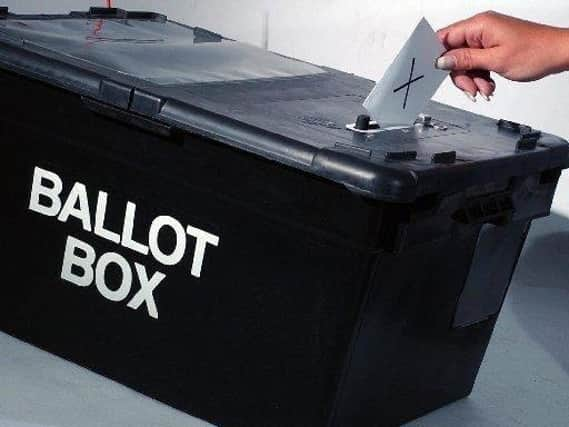Ben Lowry: Poll showing big support for staying in the UK should bolster London in its unionism


This notion has been fuelled at times by media coverage that seems to subtly push the idea of a ‘New Ireland’ (itself a biased concept, because it accepts the assumption that there is something new and modern about a united Ireland).
The call for a conversation about an all Ireland has been helped by some polls which have shown high support for a split from the UK.
Advertisement
Hide AdAdvertisement
Hide AdBut last week a major survey (for the Irish Times and a Royal Irish Academy/University of Notre Dame project called Arins) found a hefty majority of Northern Ireland people want to stay in the UK.
Why the varying poll findings?
As this newspaper has reported many times, internet based polls from LucidTalk – which has done by far the most polling on the constitutional question in recent years – find higher support for a united Ireland than do face-to-face interviews such as the NI Life and Times survey or this latest Arins poll.
A poll for Lord Ashcroft thought to be by LucidTalk in September 2019, and LucidTalk polls in February and October 2020 and January 2021 all found support for a united Ireland to be either slightly ahead of support for the UK or almost level.
More recent LucidTalk polls have found a decisive UK lead but still less than face-to-face has done.
Advertisement
Hide AdAdvertisement
Hide AdA possible reason for this is that it is harder for internet polls to find older, more conservative respondents who would be both more likely to cast a vote in a border poll, and also more likely to cast that vote in favour of the status quo.
While unionists can take comfort from the higher support for the UK in face-to-face polls than web ones, there is a risk of complacency – it is possible that people are less likely to reveal in person to a questioner that they oppose traditional views such as unionism.
A persistent problem with surveys on the constitutional question is that they are summarised with headline figures such as ‘less than half of voters want to stay in the UK’.
The most important figures that should be cited are the percentages for and against an all-Ireland when don’t knows have been excluded.
Advertisement
Hide AdAdvertisement
Hide AdThe recent Arins survey found that that 50% would vote to stay in the UK, 27% to join the Republic, and 23% would either not vote or did not know. It is misleading to summarise that by saying that 50% of people want to stay in the UK, which suggests that unionists can only scrape a majority. But when don’t knows/won’t votes are excluded, there is a huge 65-35 margin for the UK, almost two to one.
Among Catholic respondents, the figures were reversed, with 55% voting for an all-Ireland, 21% the UK, and 24% in neither group. Excluding undecideds, it is a 72-28 Catholic margin for the Republic.
Among the much touted centre ground, neither Catholic nor Protestant, there was a big majority for UK, 35% in favour of staying, 20% wanting united Ireland, but 45% undecided or disinclined to vote.
Excluding the latter, it is a 64-36 centrist ratio for the Union. The Protestant figures are 79% for UK, 4% for a united Ireland, and 18% undecided/no vote.
Advertisement
Hide AdAdvertisement
Hide AdAmong those who expressed a preference, the Protestant ratio is 95-5 for UK.
No wonder Ireland’s Future has struggled to get many people from a Protestant background to join its campaign for NI to quit the UK.
The push for an all island Republic will not be helped by the growing retrospective support for Provisional IRA terror among nationalists on both sides of the border.
I think much of the Irish response to Brexit, its response to Boris Johnson and even the sneering response to the UK’s handling of the Covid pandemic has shown that when you scratch the surface of modern Ireland you still find the deep antipathy to Britain that is so central to the nationalist historical narrative. And I write that as someone who didn’t vote for Brexit and never trusted Mr Johnson to be prime minister.
Advertisement
Hide AdAdvertisement
Hide AdBut I do think unionism is fortunate that there has not been more movement towards a united Ireland after Brexit. If Catholics had turned more heavily against the UK and Others were split 50-50, then a border poll would be perilously close.
The latest poll should not only bolster the UK government against holding such a poll but in becoming a unionist counterpart to the outspoken Irish nationalism of Leo Varadkar and Simon Coveney.